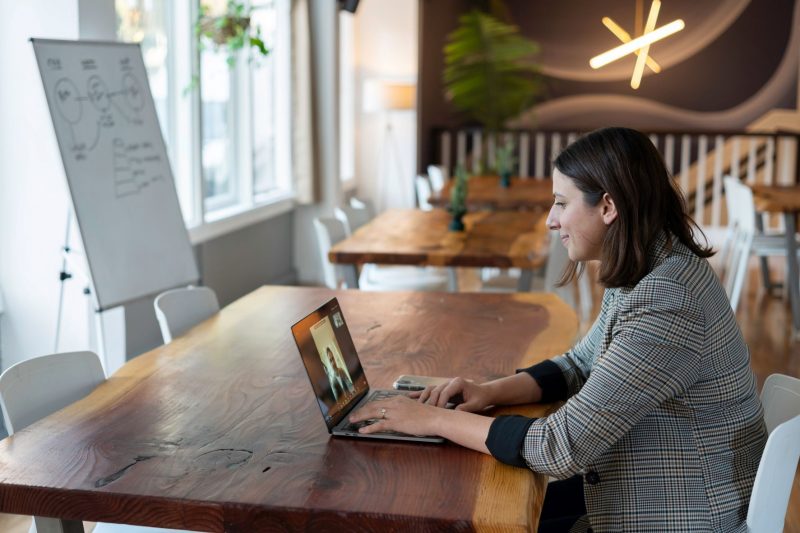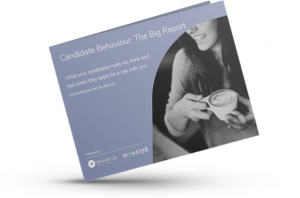The future of interviews: What do your candidates think?
As with so many elements of our day-to-day lives, the recruitment process has had to evolve in line with the Covid-19 pandemic.
That meant a significant step away from face-to-face interviews and the introduction of remote assessments.
But how do your candidates feel about this change? We’ve all adapted to virtual movie nights, family Zoom quizzes and live streams of life events… but have your candidates been able to accept the online interview as easily?
What does the future of interviews look like from your candidates’ perspective? We spoke to UK jobseekers earlier in the year as part of our landmark Candidate Behaviour research report, and this is what they had to say…

Most of your candidates are comfortable with online interviews
66% of the candidates we spoke to agreed that they were comfortable with online interviews. However, the subject was divisive. We received a lot of feedback from our respondents, all of which was either highly in favour of online interviews, or very much against them.
‘One way video interviews have been a particularly terrible experience’ – Survey respondent
Without further evidence, it’s difficult to draw clear conclusions as to why online interviews generate such strong feelings. We can make a reasonable assumption, however, that candidates’ responses to online interviews are based on their own experiences.
If someone has experienced poor connectivity issues, unclear guidance on how to participate in an online interview, or nerves about using new technology, it’s likely they may perceive remote interviews more negatively than others.
On the flipside, those who have had positive experiences may be more inclined to sing the praises of online as the future of interviewing.
‘Online interviews work really well and save time for everyone involved’ – Survey respondent
The ‘human touch’ is still preferred
Interestingly, although many candidates were comfortable with online interviews, the majority of our respondents did agree that they still prefer face-to-face interviews (62%), rather than remote.
Perhaps unsurprisingly given familiarity with technology, the preference for in-person interviews shot up in the 65+ age bracket. Younger candidates, too, were more likely to prefer a face-to-face session. Again, this could be related to technology. Although our younger demographic are digital natives, they may be less familiar with professional tools, such as Teams or workplace video interviewing tools.
To support both ends of the scale, provide clear guidance on how to participate in online videos. Perhaps candidates could record a practice session, or you could offer a chatbot to help answer queries if your applicants run into a tech issue.
What are the benefits of online interviews?
Generally, remote interviews can be more flexible and accessible than their in-person counterparts.
We already know that the pandemic has opened up a more global talent pool for some employers, as applicants who previously were limited by geography can now (in theory) work anywhere, any time.
Similarly, the move to online may have provided more opportunities a whole range of candidates. From disabled people to those with caring responsibilities, remote interviews and workplaces may have removed barriers around travel, accessibility, mental health considerations and work-life balance.
Interestingly, those who were most likely to prefer online interviews were in the 35 – 44 years and 45 – 54 years age group. In terms of caring responsibilities, these candidates may be most likely to have young children or elderly parents. These kinds of considerations may previously have limited candidates’ capacity to travel, or to make time for an in-person interview.
Perhaps in a similar vein, our research found that more men prefer face-to-face interviews at 67%, compared to only 58% of women – who typically are more likely to be care-givers.
A more flexible future?
The above is, of course, speculation. But when it comes to the future of interviews, any tools or processes that remove barriers to applying for a role have got to be a positive.
And that benefit doesn’t just extend to the candidate. We should all know by now the positive impact of a diverse workforce – in terms of everything from product innovation and company culture to the bottom line.
Employers who embrace the flexibility and accessibility of online interviews may be able to reap the rewards with a more diverse workforce. Of course, this needs to be underpinned by a working culture which also supports diversity and inclusion.
And what of those candidates who still feel strongly that the future of interviews should not lie in remote assessments?
Well, as the pandemic and associated restrictions continue to ebb and flow, many organisations will be unable to return to face-to-face interviews for some time. Online interviews are here to stay it seems – so as an employer, it’s vital that you help to support uncertain or sceptical candidates.
We know you’re never going to be able to convince everybody, but you may be able to help some of your applicants feel more comfortable with remote interviews. Look at how you can manage their expectations before their session. Help them with technical checks. And provide guidance, whether in the form of videos, How To guides or chatbot support.
Find out more…

Are you looking for more insights into how your candidates think, feel and act during the recruitment journey? From research to attitudes towards online interviews, we cover it all in Candidate Behaviour: The Big Report – one of the most comprehensive research reports in the industry.
Created in partnership with Monster, we asked jobseekers across the country, of all ages and working in a wide range of sectors, to tell us how they act, think and feel during the hiring process. So, for a deep dive into your candidates and how they feel, download your report today!



